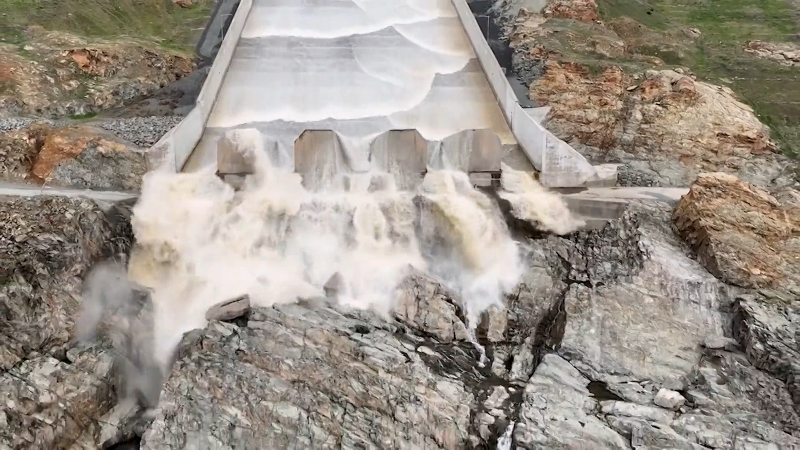Major California hydro plant finally reopens. What that says about the drought, recent rains
It was one of the low points of the drought: California officials took the unprecedented step of shutting off one of the state’s largest hydro power plants in August because there wasn’t enough water in the reservoir.
Five months after the shutdown, following weeks of encouraging rain and snow, the Department of Water Resources announced it had finally resumed operations at the Hyatt Powerplant at Lake Oroville.
“This is a significant milestone as California sees some relief from drought conditions,” said department Director Karla Nemeth in a prepared statement.
The plant has reopened at less than full throttle. The department is trying to store up water at Oroville for spring and summer, when demands mushroom, and is only releasing water at a relatively sedate 900 cubic feet per second. That’s only enough water to generate 30 megawatts of electricity — a fraction of the plant’s maximum capacity of 750 megawatts. One megawatt can power 750 homes.
Last August’s shutdown put additional pressure on the state’s fragile electricity grid — and provided a vivid demonstration of how climate problems feed off each other. California was barely able to avoid rolling blackouts last year after enduring two nights of blackouts during a 2020 heat storm.
The Hyatt closure, the first since the reservoir opened in the late 1960s, came as water levels at Oroville sank to below 640 feet of elevation, leaving the lake barely a quarter full.
As of Monday, the water levels had risen to 716 feet. The reservoir is 39% full. That’s still 26% below average for early January.
Even as the Sierra Nevada snowpack grows and reservoir levels improve, state officials have warned that the drought continues. State hydrologist Michael Anderson said Tuesday that the next three months are likely to be fairly dry, and the State Water Resources Control Board approved outdoor watering restrictions that could result in $500 fines against violators.
This story was originally published January 4, 2022, 3:10 PM.








